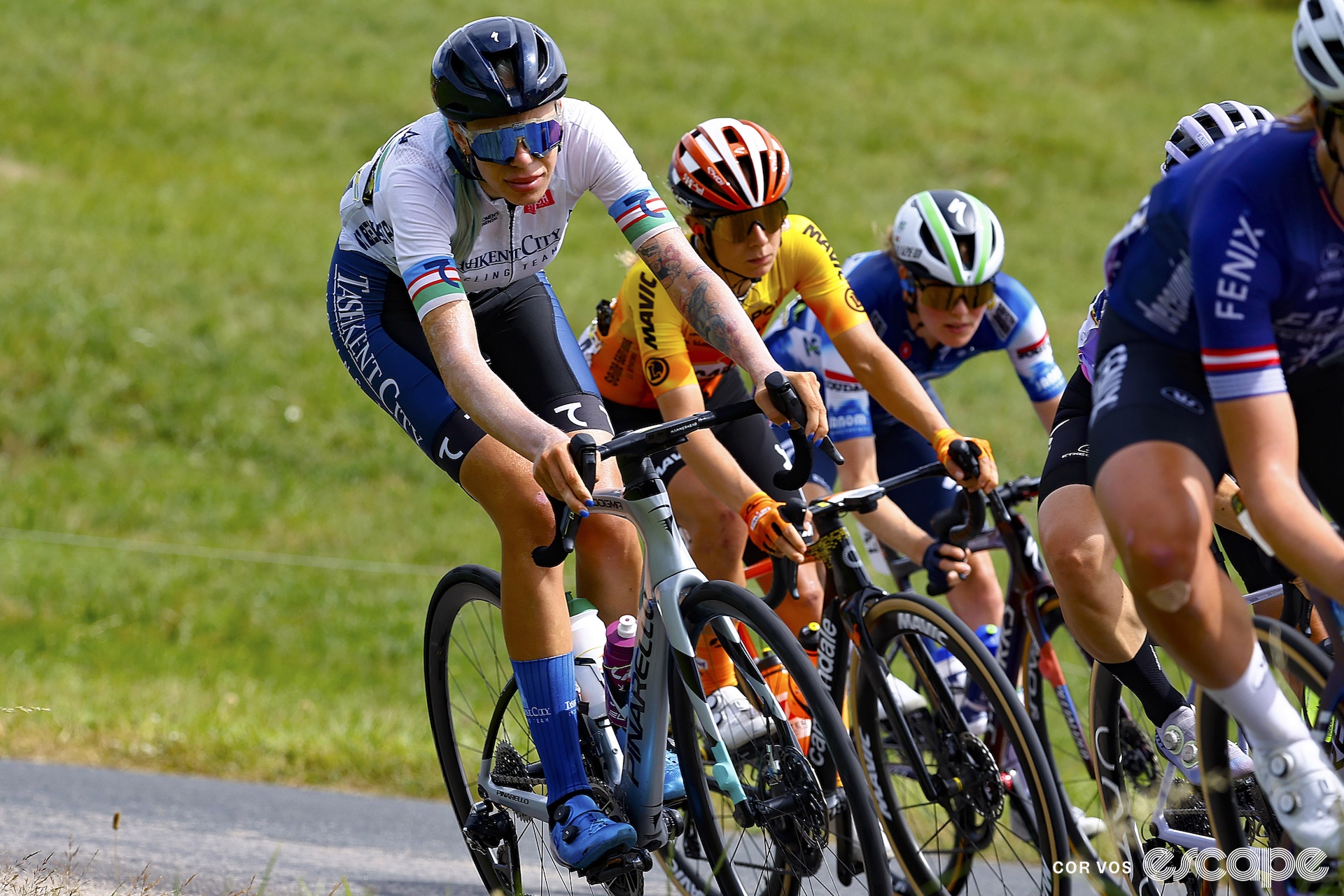Did we do a good job with this story?


The strange saga of the Uzbekistan team's 2024 season and its abrupt end highlight major challenges in developing women's cycling.
Yanina Kuskova during the seventh stage of the Tour de France Femmes.